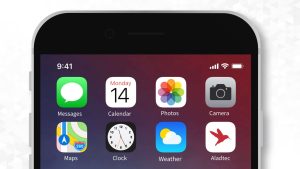Blog
December 17, 2018
What to Expect From the Generation Z Workforce

Business owners and managers are probably triggered after reading this title. Gen Z at work, already? What happened to the Millennials?
While still a very important part of the workforce, the ever-ambitious Millennials are taking on managerial and executive roles in companies, leaving room for an influx of a new fleet of workers—the Generation Z. Let’s take a closer look at Gen Z at work, how they compare to their predecessors, and what they are bringing to the table as employees in the years to come.
Generation Z vs. Millennials
At approximately 61 million, the so-called digital natives are a larger age group than the Millennials and Baby boomers. The oldest members are now freshly graduated—that is, if they even opted to attend college. Gen Zeers are expected to be the best-educated generation yet, but since they grew up during the most difficult recession and job crisis in recent history, they are more cautious and pragmatic. According to research from Universum, almost half of Gen Zeers would consider accepting a job straight out of high school, while 15% would take it without delay. These young workers place a strong value on job stability but seem dubious about traditional higher education, especially given the imminent burden of student debt.
Moreover, while Millennials are tech-savvy, many of them remember a world before the World Wide Web. Generation Z is practically glued to their devices and social media accounts since middle school—an average Gen Zeer checks their smartphone every three minutes. Needless to say, technology is second nature to them. This might be a blessing in disguise— having employees who are hyper-literate when it comes to technology means they can easily adapt to new gadgets or processes and even help improve them.

What Gen Z is looking for in the workplace
Fair treatment
Research has shown that prejudice about the generation gap can be significantly more harmful that the objective generation gap. When more experienced employees perceive their younger colleagues as less interested, easily bored, and distracted, they consequently adapt their management and training style to reflect these negative stereotypes. This often leads to miscommunication and lower quality mentorship. The actual gap in job attitudes between these generations may not be that wide, but both the old and the young suffer from their bias.
Example: only about a third of HR and L&D executives believe that Gen Zeers are willing to learn professional skills for a higher salary or a promotion, while actually a half or more of the young professionals would be eager to invest their time for these goals. This finding shows that the post-Millennial generation is frequently underestimated, which is bad for their engagement and the business that loses potentially top performers.
Career development opportunities
Although financial security is important to Generation Z, they do not view their job solely as a means to an end. In fact, personal achievement is one of the core elements of their identity, which is a stark difference compared to Boomers who place more value on their family background and religion. Gen Z at work are known for their passion and entrepreneurial spirit, but managers need to nurture those traits to retain this talent in the long-run.
In fact, while Millennials were dubbed “the entitled generation”, Gen Z at work seems more realistic, but equally ambitious to succeed. They don’t feel that they deserve success, they want to earn it and better themselves every step of the way.
Flexibility and autonomy
To attract them and keep them with the company, HR executives need a deeper understanding of their priorities in the workplace—which are not that different compared to their predecessors. Aside from job security, work-balance is an equally important career goal for Generation Z. They don’t simply prefer flexibility—they demand it, starting from remote work options, flexible working hours, and real-time communication. Having practically grown up on the Internet, this generation is fully equipped to manage life on the go, but they expect their employers to keep up.
Flexibility in the workplace naturally extends to autonomy—Generation Z expects to be trusted and allowed to showcase their skills, creativity, and—themselves. Their number one fear regarding job search is not finding a position that matches their personality. They hold their accomplishments, knowledge, and traits in high regard, so they won’t settle for a rigid corporation if they can forge their career path elsewhere.

Onboarding and retaining new talent is always challenging, especially when a business is set in its ways. For Generation Z, change, crisis, and connectivity are synonyms for coming of age, so they are a force to be welcomed in the business dynamics we’re grappling with nowadays. They have their quirks, but so does every generation. The trick is to treat differences as complementary traits, not a reason for escalation.
Top trending


